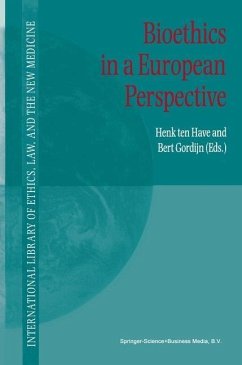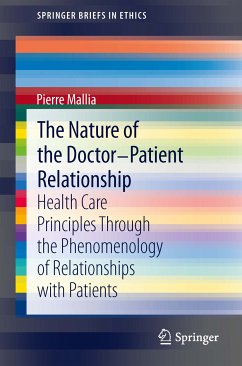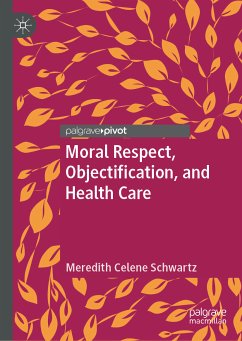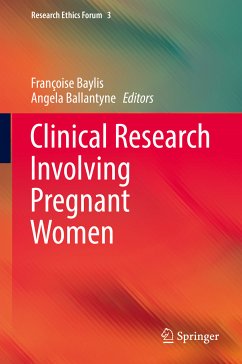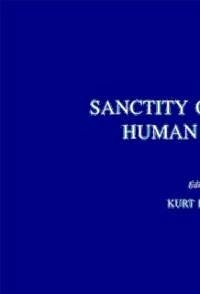
Expanding Horizons in Bioethics (eBook, PDF)
Versandkostenfrei!
Sofort per Download lieferbar
112,95 €
inkl. MwSt.
Weitere Ausgaben:

PAYBACK Punkte
56 °P sammeln!
Like its predecessor, New Dimensions in Bioethics, this volume developed out of a series of lectures at Yale University's Institution for Social and Policy Studies. Each speaker in the Bioethics & Public Policy Seminar Series was invited because of her or his expertise in a given area of bioethics. Each of the more successful participants was invited to contribute a manuscript for publication. The essays are bound together by the application of an ethical analysis to scientific questions, and by consideration of policy implications. At its inception, bioethics was virtually synonymous with med...
Like its predecessor, New Dimensions in Bioethics, this volume developed out of a series of lectures at Yale University's Institution for Social and Policy Studies. Each speaker in the Bioethics & Public Policy Seminar Series was invited because of her or his expertise in a given area of bioethics. Each of the more successful participants was invited to contribute a manuscript for publication. The essays are bound together by the application of an ethical analysis to scientific questions, and by consideration of policy implications. At its inception, bioethics was virtually synonymous with medical ethics. As the field grew and attracted new practitioners, it became clear that other applications of this new subject required extension of its scope. For example, environmental ethics, propelled by such authors as Aldo Leopold and Rachel Carson, quickly developed a vigorous literature of its own. More recently, developments in the analysis of the human genome, the enticing medical possibilities offered by the therapeutic use of stem cells, the complexities surrounding the cloning of animals and possibly humans and the development of transgenic agricultural crops have given new impetus to the expansion of traditional bioethical horizons. Bioethics must now adjust to these new realities, for it is clear that public interest in the field is growing as these new challenges appear.
Dieser Download kann aus rechtlichen Gründen nur mit Rechnungsadresse in A, B, BG, CY, CZ, D, DK, EW, E, FIN, F, GR, HR, H, IRL, I, LT, L, LR, M, NL, PL, P, R, S, SLO, SK ausgeliefert werden.





